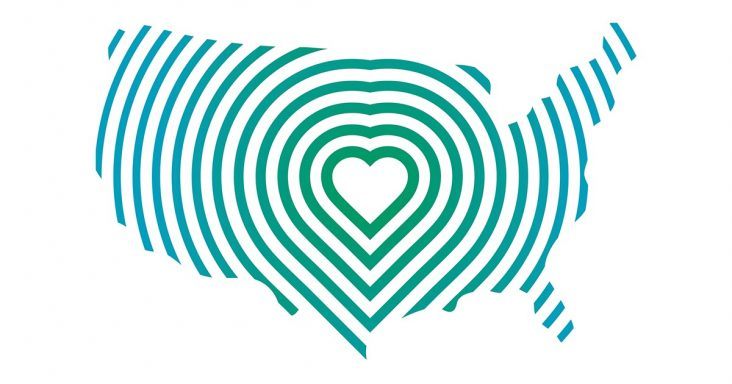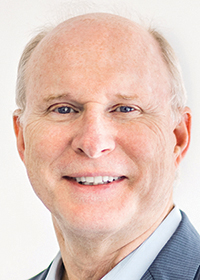COVID recovery: A 7-point strategy from Heartland Forward
by October 28, 2020 2:24 pm 1,038 views

Ross DeVol said Northwest Arkansas’ economic recovery from the COVID-19 pandemic starts from a place of strength. But the region can’t afford to be complacent.
“That type of [complacent] mindset would be, ‘We’ve already made great investments, we’re getting some buzz generated,’” he said. “You have to continue to rewrite the narrative.”
DeVol, president and CEO of economic think tank Heartland Forward in Bentonville, said Northwest Arkansas needs to make a more concerted effort to market itself outside the region. That’s one of seven critical points published in a new report from Heartland Forward, “Northwest Arkansas Economic Recovery Strategy.”
DeVol authored the 98-page report along with Heartland Forward researchers Dave Shideler, Joel Kotkin and Richard Florida. Their research and interviews resulted in seven key points that will strengthen the region’s post-COVID-19 recovery strategy. The report contains specific proposals around them.
“What we were trying to create was not just a study, but strategies with specific recommendations behind them,” DeVol said. “That’s what is different about this [report]. No other place in the country has as detailed an action plan as what this strategic plan presents.”
Florida, a leading urbanist and senior fellow at Heartland Forward, said the recovery strategy could be a model for cities across the United States and the world.
“This strategy leverages the tremendous progress, assets and investments that have been made in the region and positions Northwest Arkansas to recover in a way that is more inclusive and resilient,” he said. “While every community is different, our hope is that stakeholders from urban, suburban and rural communities across the country will be inspired by our work to develop strategies for their communities.”
The full report is available at this link.
BUILDING A STRATEGY
Heartland Forward is the first U.S. think tank focused entirely on the economic situation of the Heartland region. It is spearheaded by Walton family members and led by DeVol, a former Walton Fellow and Milken Institute chief research officer.
Heartland Forward uses the U.S. Census regions of East North Central, West North Central, East South Central, and West South Central to define the Heartland. These regions cover the 20 states in the middle of the country: Alabama, Arkansas, Illinois, Indiana, Iowa, Kansas, Kentucky, Louisiana, Michigan, Minnesota, Mississippi, Missouri, Nebraska, North Dakota, Ohio, Oklahoma, South Dakota, Tennessee, Texas and Wisconsin.
Heartland Forward developed the report’s strategies by organizing and evaluating comprehensive data on several Northwest Arkansas sectors:
- Economy and industries
- Small businesses and startup ecosystem
- Talent base
- Changing demographic composition
- Quality of place that stems from its arts, culture and recreation initiatives and investments.
Interviews and focus groups with Northwest Arkansas residents representing those sectors supplemented the data.
“You’ve got to make sure your conclusions are grounded among the community,” he said. “It’s easy to come up with the best ideas, but unless you listen to everyone, you’re not going to have a plan that can be acted upon.

“That’s what we wanted to do — develop a plan that has clear action items.”
DeVol said before the crisis hit, Heartland Forward’s assessment of the region was robust, excelling in population growth, job and wage growth and other essential metrics. Northwest Arkansas ranked fourth in population growth of the more than 100 U.S. metro areas with more than 500,000 people since 1990, third in job growth, and second in annual average pay gains among medium-size metropolitan areas (populations of 500,000 to 999,999) between 2013 and 2018.
SEVEN KEY POINTS
Northwest Arkansas suffered less from the pandemic than most areas, and DeVol said the region seems to be in a unique position to adjust to the current trends associated with it.
Heartland Forward’s plan for Northwest Arkansas consists of seven critical points with recommendations:
- Become the Heartland’s leading small region for talent.
- Be the Heartland’s best small place for arts, culture and recreation.
- Grow the economy and jobs around big company anchors.
- Bolster the region’s small business and startup ecosystem.
- Make inclusion and diversity a regional priority.
- Put health at the center of the agenda.
- Rebrand and market the region.
DeVol said the recommendations aren’t necessarily ranked in order of importance.
“They’re all individual elements,” he said. “They all feed into each other. You can’t start by saying you’re going to rebrand the region unless you describe the ways you would go about rebranding the region.”
Among the many recommendations included in the report, Heartland Forward proposes a Campus NWA initiative to retain students who come to the region to attend college. Northwest Arkansas must also “double down” on its already significant arts and culture investments, which are essential for attracting and retaining talent.
The report also recommends diversity, equity and inclusion must be at the center of the region’s economic development agenda moving forward.
“It must be a business priority and centerpiece of the region’s impressive arts, culture and recreation initiatives, which should be tailored and expanded to meet the needs of less advantaged and minority populations and communities,” the report said. “While great work is being done by many, strong coordination must be addressed for the region to truly accelerate and deliver on the types of things that are accepted by evolving the NWA community.”
DeVol said one of the most transformative changes recommended in the report related to health and well-being. The region’s vision should be to create an entire spectrum of care, from self-care to primary care to specialty care, in a whole health model.
A new health organization ramping up in Bentonville, called Whole Health Institute, will be at the forefront of that process. Walmart heir and philanthropist Alice Walton introduced the Whole Health Institute project at the Northwest Arkansas Council’s winter meeting in January 2020.
“The Whole Health Institute should develop a collaboration with the just-announced University of Arkansas Institute for Integrative and Innovative Research [I3R] and the University of Arkansas for Medical Sciences [UAMS] to establish a unique medical research cluster in NWA,” the report said.
MOVING FORWARD
DeVol said it’s now up to cities and regions, whatever the size or geography, to respond to the challenges wrought by the pandemic and seize the opportunities it presents.
He said Northwest Arkansas should act immediately on the recommendations in the new Heartland Forward report.
“That’s easy for me to say and harder to do,” he said.
DeVol said the Northwest Arkansas Council would play a key role in driving recommendations forward.
“They’re already plugged into most of the various sectors, from retaining young talent, developing an entrepreneurial ecosystem, and making diversity and inclusion a top regional priority,” DeVol said.
